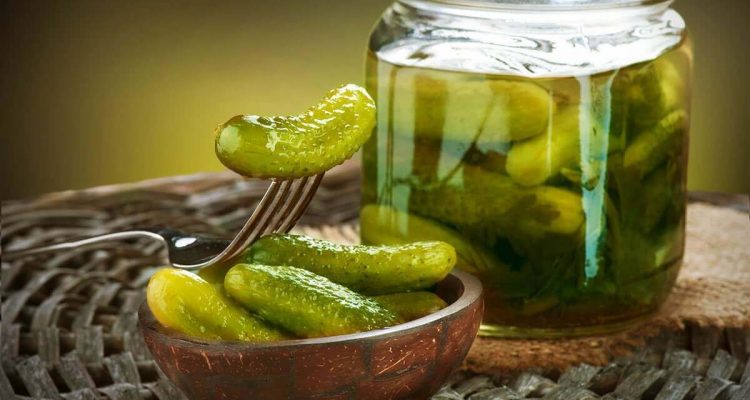
The truth about the harm of pickled cucumbers is revealed
0
Pickles are a familiar and favorite snack, but how useful are they? It turns out that properly prepared pickled cucumbers are very useful and even act as a probiotic. At the same time, you need to know the measure, because they also have their disadvantages.
Most vegetables are useful, there is no doubt about that. No nutritionist will advise their clients to give up cauliflower or kale, for example. No one argues about cucumbers either, but if they are pickled, confusion begins. So, are pickled cucumbers useful?
On the one hand, fermented vegetables are good for the intestines, and on the other hand, they contain a lot of sodium. If you've never been interested in the cucumber process, here's how it works. Cucumbers are placed in a glass jar with water, salt and spices to taste (garlic and dill are most often used), and after three days a wonderful crispy snack is obtained. Of course, you can salt many other vegetables.
However, putting aside the fact that pickles are a great addition to a sandwich, how good are they really? I did some research to put this issue to rest once and for all.
Nutritional properties of pickles
Since pickles (like other vegetables) are just cucumbers that you've pickled, their nutritional properties depend on the specific cooking method. “The first option is fermentation, cucumbers or other vegetables are soaked in a salty brine, which leads to the bacterial breakdown of sugars. This provides the finished product with its characteristic sour and sharp taste, says registered nutritionist-nutritionist Maya Feller. “The second way is to soak cucumbers in vinegar.” If there is a “womb” in the vinegar – a slimy sediment consisting of bacteria that feed on the alcohol – then the fermentation process will take place, says Feller. If there is no such sediment, then fermentation will not work.
Pros
1. Pickled cucumbers-probiotics
As I wrote earlier, (most) pickles are a fermented product, which means that they contain many probiotics that benefit the intestines. During the fermentation process, sugars in vegetables are broken down and turned into lactic acid, which has a probiotic effect.
You probably already know that the key to the health of the whole body is a healthy intestine. The microbiome affects not only digestion, but also the immune system and even plays an important role in maintaining a healthy weight. Here's the bottom line: adding a pickle to your hot dog is the best thing you can do for your body at a picnic.
2. Pickles are good for eyesight
If you stare at a computer screen all day, then pickles will benefit you. They have a lot of vitamin A, which supports healthy vision. As an added bonus, vitamin A is also good for the immune system.
3. Pickled cucumbers help bones stay strong
In addition to vitamin A, pickles also contain vitamin K, which helps prevent osteoporosis thanks to its ability to regulate calcium levels.
4. Pickled cucumbers help deal with muscle cramps
According to the results of one study, athletes who drink pickled cucumbers suffer less muscle cramps than those who drink water . This is largely due to the salt content. Eating a moderate amount of sodium helps with muscle contraction.
1. Processed pickles may contain lots of preservatives and not provide the probiotic effect
If you really want to get the health benefits of pickles, buy them chilled. Cucumbers intended for long-term storage on the shelf are usually prepared with vinegar, which destroys most of the beneficial properties for the intestines. Processed cucumbers often contain preservatives and have more sodium to help them last longer. By preferring chilled cucumbers, you will be able to get all the benefits from them.
2. Pickled cucumbers cause bloating
If your stomach starts to feel bloated after the pickles, you can blame it all on the fermentation process, as salty foods are known to cause bloating. This usually happens with processed canned cucumbers, which do not have the probiotic effect of fresh pickles. Such cucumbers contain less salt, which means that they cause less bloating. Or it's just that you ate too many pickles, which can also lead to such consequences.
3. And yes, pickles are usually high in sodium
In addition to the previous point, let's say that although salt-fermented pickles are good for athletes who have lost a lot of electrolytes, they are high in sodium : about 313 milligrams per serving. (The American Heart Association recommends limiting yourself to 1.5 grams per day.) As the saying goes, “everything in moderation.”
So, are pickles good for you?
< p>Although processed canned cucumbers intended for long storage on the store shelf cannot be called a superfood, fresh pickled cucumbers have a number of useful properties. It's best to limit yourself to one or two cucumbers to get the probiotic benefits, but limit your sodium intake. Remember this, and pickles will become a useful component of a healthy diet.
How to serve pickles
Pickled cucumbers, of course, can be eaten straight from the jar, added to a sandwich, burger, hot dog, etc. but there are more creative ways. “Gherkins – small pickled cucumbers are often served with various meat and cheese cuts, fondue and raclette in Switzerland,” says Feller. – These small but important cucumbers contain a mixture of spices, including tarragon, cloves, garlic, onion, pepper and dill, and they also have a very good crunch.”
In French cuisine, according to Feller, gherkins are used in a “delicious and aromatic” mushroom sauce. “Pickled cucumbers, hard-boiled eggs, white wine vinegar, capers and herbs are mixed, the resulting sauce is perfect for potatoes or vegetables,” says the expert. ,” which is kimchi made from stuffed cucumbers.
“It's a great addition to a summer barbecue,” says Feller. – Kimchi paste is traditionally prepared from chili pepper flakes, fish or anchovy sauce, garlic, ginger, green onions and Korean radish.”
In addition, Feller recommends trying Haitian pickles. “It's a bright and tangy addition to any meal, I love to eat it with black rice, beans and avocado,” she says. – It is traditionally made from cabbage, carrots, Caribbean red pepper, shallots, cumin, cloves and lime juice. Everything is marinated in white vinegar for a week. The variety of flavors provides the perfect balance between pickled vegetables and spiciness.”
Quick pickle recipe
Enough for four half-liter cans.
Ingredients:
-1 tbsp. l. allspice
-1 tbsp. l. black pepper with peas
-1 tbsp. l. mustard seeds
-1 tbsp. l. celery seeds
-4 crushed cloves of garlic
—7-10 pcs. okra
-1 sweet onion, divided into four parts
-1 cup of green peas
-3 large cucumbers, cut into thick circles
-4 cups of vinegar
-4 cups of boiling water
1. In a small bowl, mix the dry ingredients: allspice, peppercorns, mustard seeds and celery seeds.
2. Put a tablespoon of the dry mixture in each of the jars.
3. Add one clove of garlic at a time.
4. Put okra in one jar, onions in another, green peas in the third, and cucumbers in the fourth.
5. Fill each jar three-quarters full with vinegar and water. Cover and leave for half an hour, or until they cool to room temperature. Place in the refrigerator for a day. Store in a cold place, shelf life – two months.

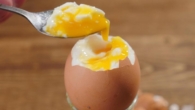

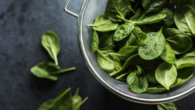

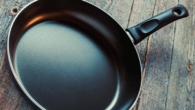
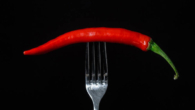
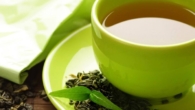

Leave a Reply